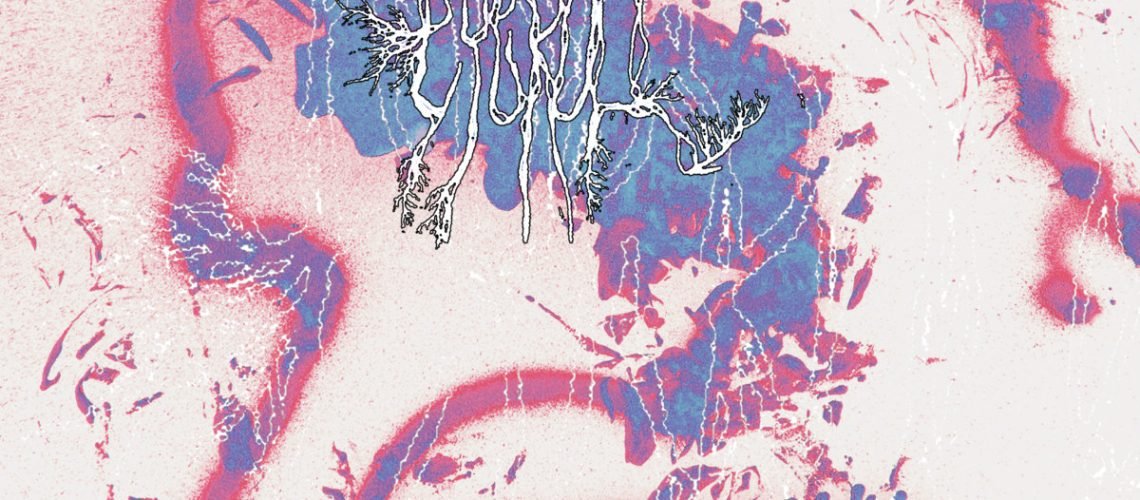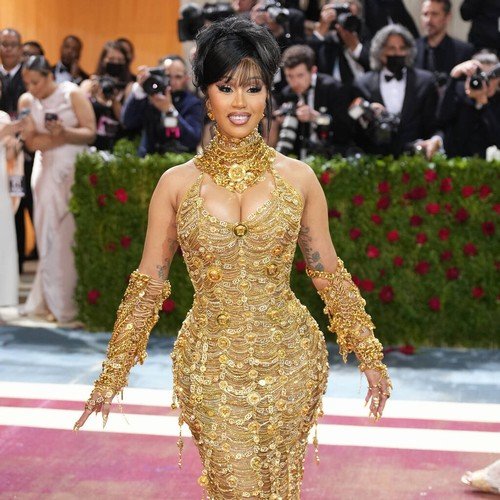Don’t miss this latest LP on Kampala, Uganda’s Hakuna Kulala, as Berlin-based Ziúr takes on a dream roster of international collaborators. In perpetually shifting, explosive rhythms and organic percussion, a fully-blurred hybrid of experimental jazz and club roots, it has plenty to say about the world around in its violence and chaos.
Ziúr was already a name for those in-the-know looking for genuinely experimental club sounds – not just in the trendy sense, but something that could rock your ears and rattle your brain by pushing in unexpected directions. There were the releases on Planet Mu and PAN and others, plus her own Now Now, plus work on adventurous Berlin collectives and parties Janus and Creamcake and her Boo Hoo events.

For more on her story, journalist Maya-Róisín Slater did a great interview for RA back at the release of Antifate, covering her punk and hardcore beginnings and her approach to collaborations. What she told RA about collaborations is equally fitting then – and maybe good advice for anyone wanting more challenging quick creative hookups rather than the elusive hunt for “The One” collaborator. She told Slater: “It’s easier somehow to just do something quick with somebody than to have a relationship with them and have a project over some time.”
Why Ziúr Makes Music For Outsiders [Resident Advisor]
Independent Ukrainian-run magazine Borshch also did an excellent profile – pullquote “I think I connect with darkness on a different level”:
ziúr will rise and sin [Borshch Magazine]
All of that said, Eyeroll is next-level, and I have a hard time topping even the deeply insightful album notes. First, there was the primal scream of a track (and video, by Sander Houtkruijer) for the titular track with equally mind-bending Welsh producer Elvin Brandi. That gave us a teaser back in May; in case you missed it:
At the end of July, we got the full release. It features some other collaborators – and repeat drive-by partnerships, at least – with Juliana Huxtable, Abdullah Miniawy, James Ginzburg, and Ledef.
It’s a percussive tour-de-force, intercut with metrical collisions, a flow that’s organic and spontaneous like jazz but with bass that hits like club sounds, and sounds that never fail to cut like a knife. Miniawy joins on trumpet in some of the most poignant moments; Ginzburg adds a drone and piano. It has the feeling of them stopping by a studio, with a sense of improvisation – but also the impression of a calculated, complex production and form atop it.
I think I like Ziúr’s self review best, actually – announcing the release on Twitter/X, she notes, “was insane finishing this beast and it damn well slaps.” Damn straight.
The uncredited liner notes break down that story succinctly, and connect it to a zeitgeist or at the very least personal transformation.
The world has changed, we shouldn’t try and pretend otherwise. While we were shut away in isolation our routines shifted, social patterns evolved, and our hopes and dreams were twisted into cobwebs we’re still trying to wipe from our fingers. Ziúr tentatively approached this on her last album Antifate, an ambitious and complex hybrid pop fever dream that looked back to a Medieval escapist fantasy as the scent of revolution seemed to hum in the air. But when restrictions were eased, she found herself staring down a discombobulated society that had trapped itself in a spiral of microwaved nostalgia and detached, narcotic repetition. Eyeroll then is Ziúr’s musical panacea, a tincture to wake us from our creative slumber and prompt external connection and reflection. It’s a polyphonous hex that demands human interaction, and Ziúr’s hand-picked alliance of collaborators – Elvin Brandhi, Abdullah Miniawy, Iceboy Violet, Juliana Huxtable, Ledef, and James Ginzburg – each provide distinct voices that together herald a bewildering sonic epoch.
Ziúr’s palette had to evolve to match the scope of the project, but it was pure necessity that informed the album’s defining tone. Recording mostly at night, Ziúr was conscious of the noise she was making so developed a unique way to record organic percussion. Using a set of rototoms – low profile tunable drums – she scratched, scraped and gently tapped the skins to build up the undulating and unstable rhythmic backdrop for each track. It’s the first sound we hear on the opener ‘Eyeroll’, rattling like lost marbles against Elvin Brandhi’s primal croaks and screams. And when Brandhi’s twisted articulations form words, Ziúr matches the energy with chaotic thuds and serrated blasts of saturated electronics. “I roll the shittiest cigarette,” she squeals like she’s about to start a mosh pit at Paris’s GRM Studios. Without pause, Abdullah Miniawy takes over on ‘Malikan’, building on the promise of material with Simo Cell, Carl Gari and HVAD with corrosive trumpet blasts and charged, politically incendiary Arabic vocals. Inspired by pre-Islamic poetry and the Qu’ranic chanters he heard growing up in Saudi Arabia and Egypt, he spins labyrinthine stories that cross between the worlds, breaking down physical and spiritual borders simultaneously. Miniawy’s scope is expanded even further on his second collaboration, ‘If The City Burns I Will Not Run’. “If it rains and the city drowns,” he utters over gaseous electronics, “I will not run away, but I will be anxious for the heart of one close to me.”
After a supple vocal turn from Manchester’s Iceboy Violet on ‘Move On’ and a surreal interlude from poet- DJ-artist-theorist Juliana Huxtable on ’99 Favor Taste’, Brandhi returns with two more hyperactive collaborations: ,’Nontrivial Differential’ and ‘Cut Cut Quote’. On the former she slices into Ziúr’s skeletal jazz eruptions, screaming and crooning interchangeably, fluxing between the rap battle and the cabaret. The latter is completely different meanwhile, with Brandhi settling into her role as front-woman and groaning dizzying improvised passages that sound like grunge crossed with psychedelic no-wave. Brandhi’s spiky musical history has prepared her well for this collaboration; she’s a prolific producer and has been using her voice spontaneously since debuting with father-daughter improv duo Yeah You in the mid 2020s. She’s found an ideal foil in Ziúr, a producer who matches her restless energy and willingness to bend formality, and leaves an indelible mark on Eyeroll. But the album’s most tender moments are from Ziúr herself, who winds the album down on ‘Hasty Revisionism’, growling over collapsable beats and cascading strings, and comes to an unexpected conclusion with country coda ‘Lacrymaturity’. Its feverish amalgamation of country music and euphoric, experimental electronics might seem incongruous at first, but in context with the rest of the album is the only possible conclusion. With Eyeroll Ziúr is making a firm statement about togetherness, humanity, and the renewal of hope when all seems lost. By bringing together such a wide but philosophically harmonic team of collaborators, she’s conducted a body of work that speaks to the creative fringe in no uncertain terms. Now’s the time to throw away what you think you know, and build bridges you didn’t think you need. Now’s the time for action.
She may have spent her entire career avoiding the solipsistic trappings of “queer art”, but by assembling a communal statement that questions so many normative assumptions about music, politics, and beyond, Ziúr has chanced upon her queerest album yet. Cringe? Eyeroll.
That first line you feel in your gut just like the music. The world has changed. Maybe Ziúr has, too. Unlike the world, that change is working.
We need more like this.




